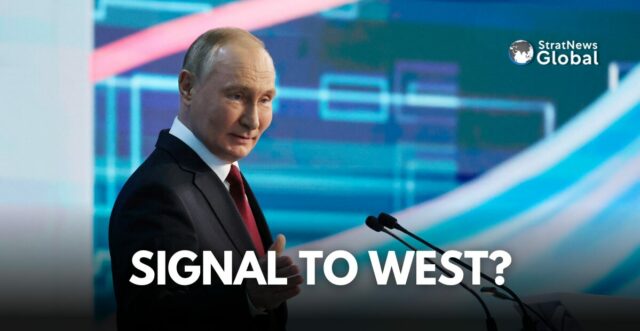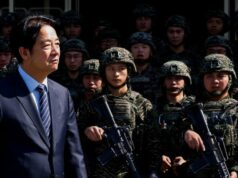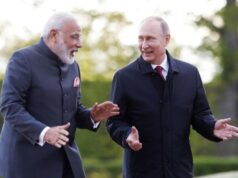The Kremlin announced on Thursday that adjustments to Russia’s nuclear weapons doctrine, as outlined by President Vladimir Putin, should be viewed as a clear warning to Western nations. Putin had stated that Russia could resort to nuclear weapons if struck by conventional missiles, emphasising that any attack on Russia supported by a nuclear power would be considered a joint assault.
Russia’s Response to Western Deliberations
The changes to Russia’s nuclear doctrine come in response to discussions in the United States and the United Kingdom about whether to permit Ukraine to use conventional Western missiles against Russia. According to Kremlin spokesperson Dmitry Peskov, these adjustments send a “definite signal” to the West about the consequences of their participation in any attack on Russia, even if the attack does not involve nuclear weapons.
“This is a signal that warns these countries about the consequences if they participate in an attack on our country by various means, and not necessarily nuclear ones,” Peskov remarked, adding that the world is witnessing an “unprecedented confrontation” largely provoked by the “direct involvement of Western countries, including nuclear powers” in the conflict in Ukraine.
Potential Publication of Nuclear Doctrine Changes
Russia’s current nuclear policy, formalised in a 2020 decree by Putin, permits the use of nuclear weapons in response to either a nuclear strike or a conventional attack that threatens the state’s survival. The Kremlin has not yet decided whether the latest updates to the nuclear doctrine will be published.
When asked about the possibility of ending Russia’s post-Soviet moratorium on nuclear testing, Peskov declined to comment, citing the confidential nature of Wednesday’s meeting, where much of the discussion was classified.
(With Inputs from Reuters)
Research Associate at StratNewsGlobal, A keen observer of #China and Foreign Affairs. Writer, Weibo Trends, Analyst.
Twitter: @resham_sng





